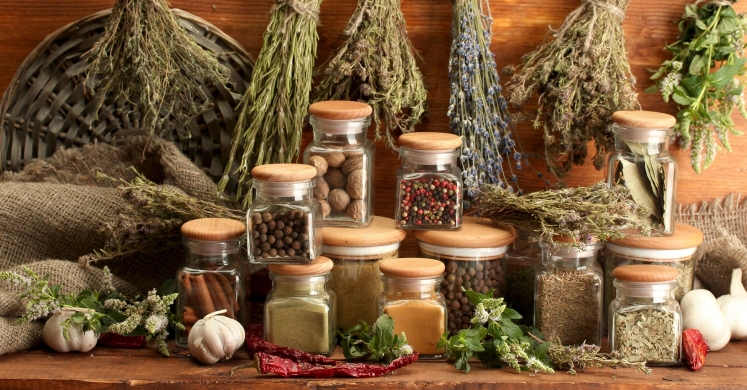Blog

Ask Ginger: How to Store Leftover Herbs
You've got questions ... we’ve got answers! Email your queries about healthy foods, physical activity and screen time for kids and Ginger will answer them here on the Phipps blog.
Q: We've been growing fresh herbs and spices as a family, but are curious how to store them for later use. What do you recommend? (Jayme, Munhall)
A: Awesome question! Fresh herbs and spices are a great way to improve taste without contributing excess sodium or calories to your meal. When experimenting with fresh versus dry herbs, remember that dry herbs are more potent than fresh. Try using one third of the amount of dried herbs compared to fresh. Another tip, add dried herbs to cooking at the beginning of the recipe and add fresh herbs to cooking at the end of the recipe, to finish the dish. This recipe from Café Phipps for a Basil Vinaigrette will give your summer salads a robust herb flavor:
Ingredients:
¼ cup white balsamic vinegar
½ cup fresh basil leaves
½ cup onion, chopped
1 small garlic clove, chopped
1 tsp. honey
¾ cup olive oil
Salt and pepper to taste
Directions: Combine vinegar, basil, onion, garlic and honey in a blender. Add olive oil slowly and season with salt and pepper.
If you’re looking for short-term herb storage in your refrigerator, first consider the type of herb you’re using. If it’s a heartier herb with a hard stem like oregano, rosemary, or thyme, loosely wrap it in plastic and store in the warmest part of the refrigerator (e.g., one of the door compartments). Note that wrapping the herb too tightly is likely to create moisture, causing mold to grow. For softer herbs like basil, cilantro, or parsley, treat them as you would flowers. As basil tends to turn black in the refrigerator, store it in a small jar of water at room temperature. Just as with flowers, you may want to trim the base of the stem.
For longer-term storage, you can freeze your fresh herbs. One creative option is to chop them up and store them in an ice cube tray, covered with water. Once frozen, transfer the ice cubes into a freezer bag. When you’re ready to use them (this works especially well for soups), just throw a few ice cubes in your dish as it is cooking. Remember to label the freezer bags with the date and the type of herb. They should retain their flavor if used within approximately two months. If you’d like to dry your herbs, keep them out in a cool and dry place for a few days. Then, place them in a storage container and store them in your fridge.
For more tips and ideas for using herbs and spices, check out our 5-2-1-0 Every Day Pinterest board, and visit Phipps' Let's Move Pittsburgh page for resources on nutrition and fitness.

